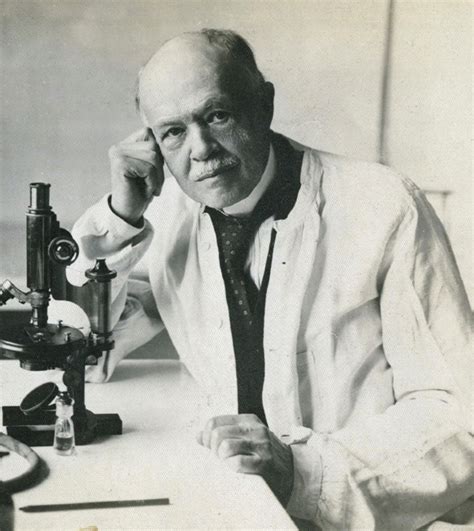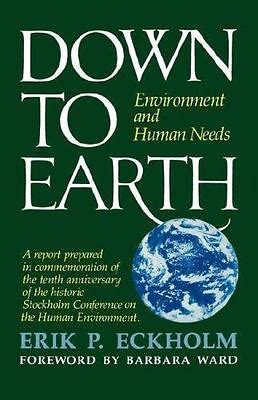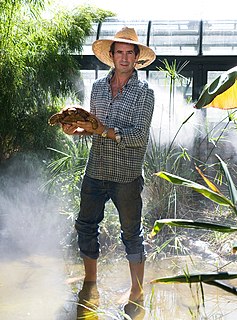A Quote by John Bowlby
Thus, just as animals of many species, including man, are disposed to respond with fear to sudden movement or a marked change in level of sound or light because to do so has a survival value, so are many species, including man, disposed to respond to separation from a potentially caregiving figure and for the same reasons.
Related Quotes
There are millions of different species of animals and plants on earth--possibly as many as forty million. But somewhere between five and fifty BILLION species have existed at one time or another. Thus, only about one in a thousand species is still alive--a truly lousy survival record: 99.9 percent failure!
It must be stressed that there is nothing insulting about looking at people as animals. We are animals, after all. Homo sapiens is a species of primate, a biological phenomenon dominated by biological rules, like any other species. Human nature is no more than one particular kind of animal nature. Agreed, the human species is an extraordinary animal; but all other species are also extraordinary animals, each in their own way, and the scientific man-watcher can bring many fresh insights to the study of human affairs if he can retain this basic attitude of evolutionary humility.
A species has to become pretty intellectually advanced in order to grasp the concept of death in the abstract, and to dream up the idea of immortality. Long before that (in evolutionary terms) all species with brains have the survival instinct in some form. So, I am just saying that there are many existent proofs of species that have one, but not the other.
Many animals experience pain, anxiety and suffering, physically and psychologically, when they are held in captivity or subjected to starvation, social isolation, physical restraint, or painful situations from which they cannot escape. Even if it is not the same experience of pain, anxiety, or suffering undergone by humans- or even other animals, including members of the same species- an individual's pain, suffering, and anxiety matter.
One animal or plant species may become extinct every hour. All species are doomed to extinction, but man through worldwide development/killing animals for food/profit/using toxic chemicals such as pesticides/industrial wastes, will accelerate the extinction of plants/animals and the result will be a more hostile environment for man.
Exploration is an oft-lauded human activity, and one that resonates in the same way that music and good stories do. It's hard-wired into our species (and into many others), no doubt because it has survival value. Exploration occasionally rewards those who accept its risks, usually with new resources.
This notion that man can, and should, have absolute dominion over the "chaotic" powers of nature and woman...is what ultimately lies behind man's famous "conquest of nature" - a conquest that is today puncturing holes in the earth's ozone layer, destroying our forests, polluting our air and water, and increasingly threatening the welfare, and even survival, of thousands of living species, including our own.






































